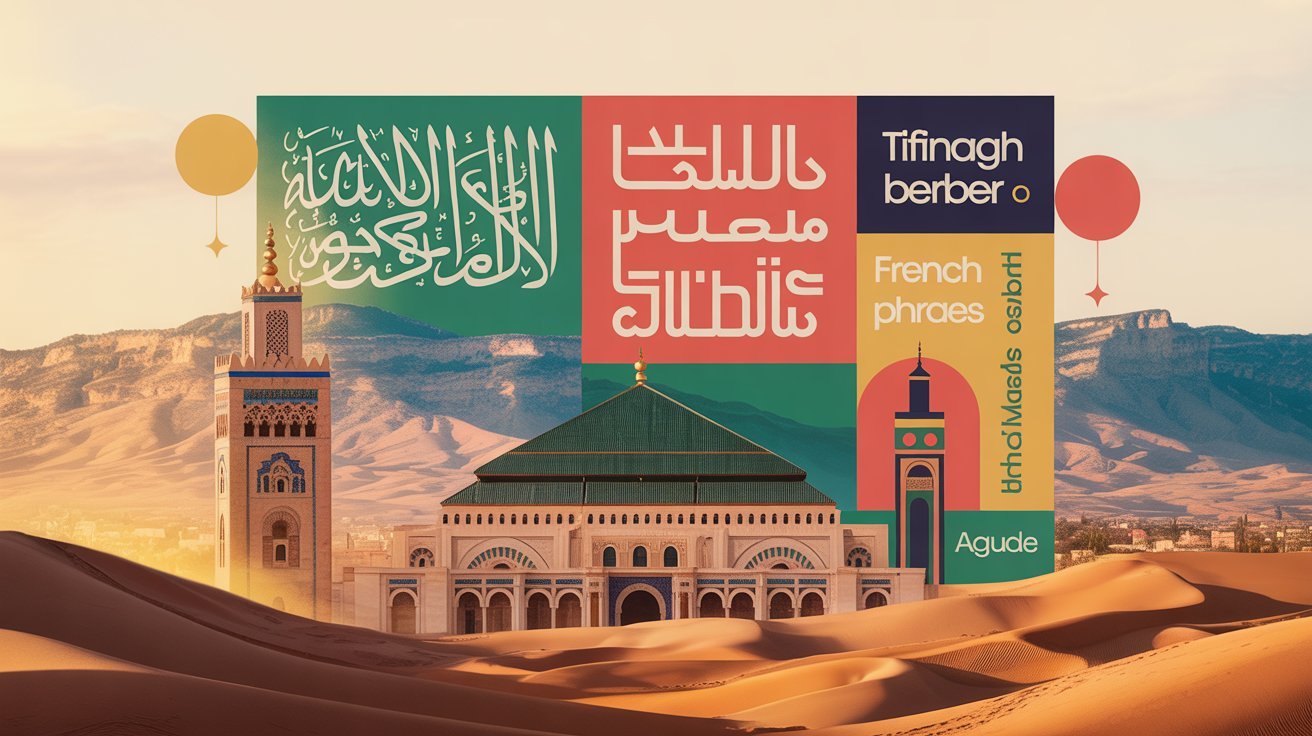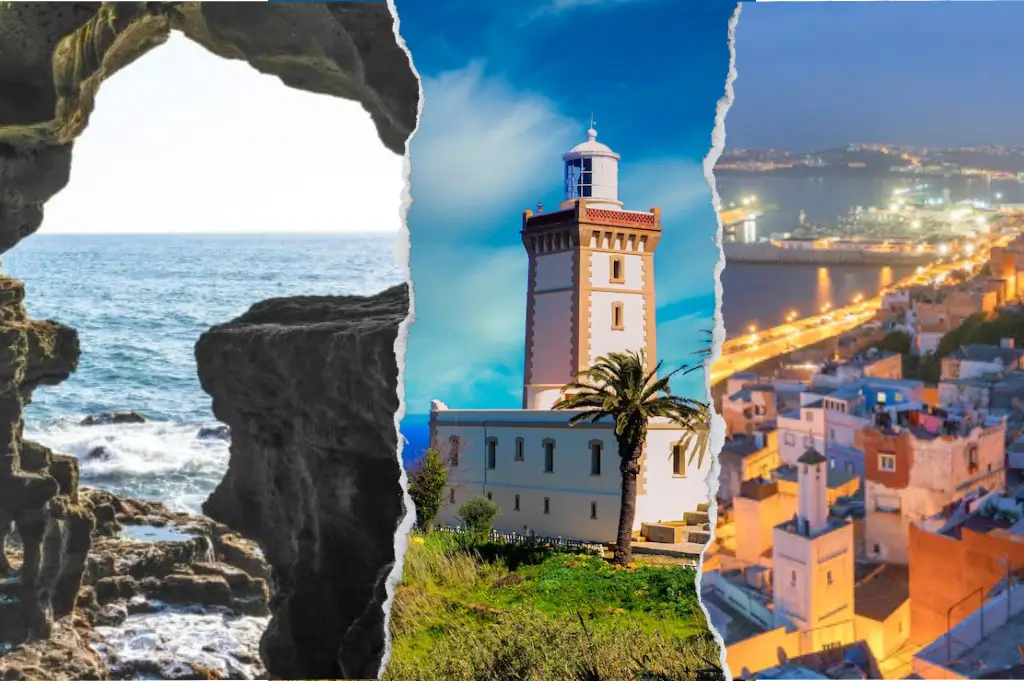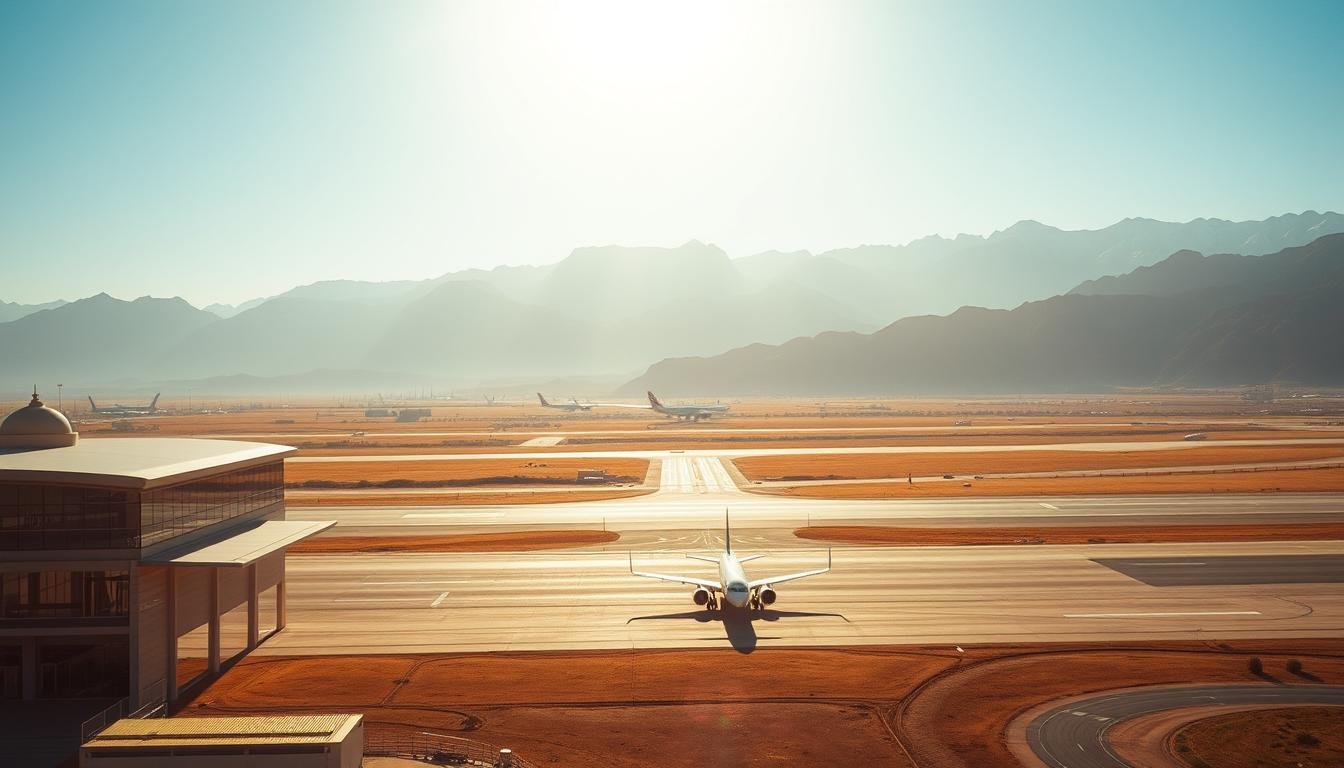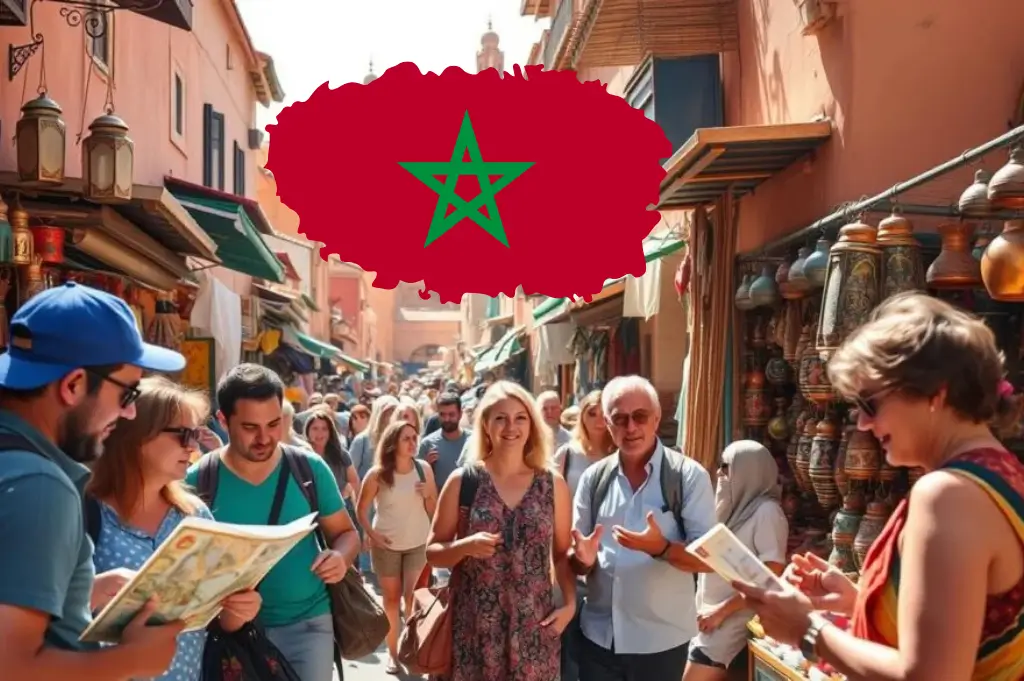Renting a Car in Morocco: Your Complete Guide to Freedom and Adventure
Unlock the Freedom of a Moroccan Road Trip
Imagine cruising through Morocco’s diverse landscapes, from vast golden deserts to rugged Atlas Mountains and vibrant medinas, stopping wherever your heart desires. While public transport connects major cities, renting a car in Morocco offers unparalleled freedom and flexibility to explore this enchanting North African kingdom at your own pace.
Many travelers feel anxious about driving in Morocco due to online “myths” and misconceptions. This comprehensive guide, built on extensive personal travel experiences and expert insights, will debunk common concerns and provide you with all the essential tips to drive confidently and safely across Morocco’s stunning terrain.
From choosing the right rental company and understanding local driving laws to navigating bustling cities and avoiding common pitfalls, this guide ensures you’re well-prepared for an unforgettable Moroccan adventure. Whether you’re planning to rent a car Marrakech Morocco for exploring the Red City’s surroundings or need to rent a car Morocco Agadir for coastal adventures, we’ve got you covered.
Table of Contents
Why Self-Drive in Morocco? Beyond the Beaten Path
Unmatched Flexibility and Exploration A rental car transforms your Moroccan journey from a scheduled tour into a spontaneous adventure. You can set your own pace, change plans on the fly, and discover hidden gems inaccessible by public transport or typical group tours. Want to spend an extra hour watching the sunrise over Erg Chebbi dunes? No problem. Spotted an intriguing Berber village off the main route? Take the detour.
Cost-Effectiveness for Group Travel For multiple travelers, car rental often proves more economical than purchasing individual bus or train tickets, especially when venturing beyond the main tourist circuit. When you factor in the convenience and time savings, rent in Morocco becomes even more attractive for groups of three or more.
Immersive Scenic Journeys Morocco’s landscapes are breathtaking – from the dramatic Todra Gorge to the rolling hills of the Middle Atlas. With your own vehicle, you can stop for photos whenever inspiration strikes, truly appreciating Morocco’s diverse scenery without being rushed by tour schedules.
Authentic Interactions Access to smaller villages and less touristy areas fosters more genuine encounters with locals. These spontaneous interactions often become the most cherished memories of your Moroccan journey.
Convenience for Luggage Ample space for your belongings eliminates the constant struggle of carrying heavy bags between accommodations, markets, and attractions – particularly valuable when shopping for those beautiful Moroccan carpets and crafts.

Is it Safe to Drive in Morocco? Dispelling the Myths
The Truth About Moroccan Roads Contrary to some outdated online reports, it is definitely safe to drive in Morocco. The King of Morocco has significantly invested in infrastructure over recent years, resulting in well-maintained main roads and surprisingly quiet highways between major cities. The modern autoroutes rival European standards.
Traffic in Cities: Manageable Chaos While cities like Fez and Marrakech can feel “a bit more hectic” initially, the traffic patterns are generally manageable and most drivers adapt quickly. Outside urban centers, traffic is often agreeable and considerably less busy than many European cities.
Moroccan Drivers: Courteous and Responsible Contrary to some travel forums, many Moroccan drivers are quite responsible, courteous, and even helpful. It’s common for drivers to flash their headlights to warn of police checkpoints or road hazards ahead – a gesture of solidarity among motorists.
Road Safety Statistics in Context While Morocco’s road fatality statistics are slightly higher than some Western countries, this is largely influenced by the higher percentage of vulnerable road users like motorcycles and pedestrians, plus an older vehicle fleet. Importantly, road safety has been improving year-on-year with continued infrastructure investments.
The Myth of Corrupt Police Multiple reliable sources indicate that police interactions are generally positive and professional. Most checkpoints simply wave tourists through, and officers encountered are typically polite and helpful. Remember: bribing an officer is illegal and can result in serious consequences including jail time.
Renting Your Car in Morocco: The Ultimate Pre-Trip Checklist
Choosing the Right Rental Company
Online vs. Local Agencies Online platforms like Discover Cars, Sunny Cars, and Rentalcars.com are highly recommended for comparing prices, transparent conditions, free cancellation policies, and reliable insurance coverage. While local agencies might offer seemingly cheaper rates for skilled negotiators who speak Arabic, they carry higher risks of scams, hidden fees, and poor customer service.
Crucial Tip: Read Reviews and Filter Always check and filter for highly-rated companies (7.5 stars or more on comparison platforms) to ensure good customer service and avoid unexpected charges. This simple step can save you hundreds of dollars and significant stress.
Essential Documents to Carry
Valid National Driver’s License This is mandatory for all rentals. Ensure the photo on your license clearly matches your passport photo to avoid complications during pickup.
Passport Essential for identity verification at rental counters and police checkpoints. Never allow the rental company to hold your passport – this practice is illegal, and you need it for hotel check-ins and identification.
Credit Card in the Main Driver’s Name Absolutely crucial and non-negotiable for the security deposit. Ensure sufficient funds to cover the deposit (typically around 10,000 MAD or ~$1,000 USD) plus your travel expenses. Debit cards are rarely accepted.
International Driving Permit (IDP) While not legally required for stays under one year, an IDP is highly recommended for convenience and peace of mind. It can simplify interactions with authorities and rental processes, especially if your national license lacks a clear photo or French translation.
Keep These Documents Together Store your rental contract, proof of rental, and “Carte Grise” (vehicle registration) with your passport in the glove compartment for easy access during police stops.
Understanding Car Rental Costs & Saving Money
Price Expectations Budget between $15-$50 USD per day depending on the company, vehicle model, and season. Enterprise rent a car Maroc and other international brands typically cost more but offer standardized service levels.
Book Early for Best Rates Prices fluctuate with seasonal demand, and Morocco’s growing popularity means early booking is crucial for securing affordable vehicles. Global car shortages have made this even more important.
Automatic Transmission Premium Most rental cars are manual transmission. If you need automatic, book well in advance and expect to pay 20-50% more. Consider learning basic manual driving before your trip to expand options and reduce costs.
One-Way Rental Flexibility Dropping off in a different city is possible with larger companies for an additional fee (typically around 700 MAD). This can be worthwhile for complex itineraries covering multiple regions.
Rental Car Insurance: Navigating Your Options
Full Protection Coverage is Highly Recommended Reputable online platforms offer comprehensive full protection insurance covering most damages, excess charges, and even lost keys. This provides invaluable peace of mind when navigating unfamiliar roads.
Decline Local Upsells Local rental offices often aggressively push additional insurance products. If you have full coverage through your booking platform, politely decline these expensive add-ons – you’re already 100% protected.
Understanding Deposit Holds Without their insurance, rental companies hold a large security deposit (typically 10,000 MAD / $1,000 USD) on your credit card. This amount is refunded upon safe vehicle return. Any damage claims are handled through your comprehensive coverage provider.
Choosing the Right Vehicle Type
2WD is Sufficient for Most Routes You don’t need a 4×4 for Morocco’s main roads, which are well-maintained and sealed. A smaller 2WD vehicle is actually preferable for navigating narrow medina parking areas and rural village streets.
Consider Luggage Space If traveling with significant luggage or planning to purchase bulky items (those tempting Berber carpets!), opt for a vehicle with adequate storage space rather than the smallest available option.
Pre-Pickup Inspection: Protecting Yourself
Document Everything Thoroughly Before leaving the rental lot, meticulously inspect your vehicle for existing damages – scratches, dents, chips, interior wear. Take photos and video evidence from multiple angles to avoid being charged for pre-existing damage upon return.
Verify Fuel Level and Policies Note the exact fuel level and ensure you understand the return policy. Most companies require the same fuel level to avoid costly refueling charges.
Review Contract Details Carefully examine the rental agreement for hidden fees, cleaning charges, or other unexpected costs before signing.
Mastering the Roads: Driving in Morocco Like a Pro
General Road Conditions
Excellent Main Roads and Highways Major roads and autoroutes are high-quality, modern, and often surprisingly quiet compared to European equivalents. The infrastructure investment is evident and impressive.
Variable Rural Road Quality Regional (R) and Provincial (P) roads can vary significantly, with some unsealed sections (“pistes”) or occasional potholes. However, these rarely require 4WD capability and are generally manageable with careful driving.
Understanding Traffic & Local Driving Habits
Basic Driving Rules Morocco drives on the right side with left-hand steering wheels, similar to continental Europe and North America.
Urban vs. Rural Driving Dynamics City driving involves navigating around scooters, donkeys, carts, and pedestrians, requiring heightened awareness and patience. Rural driving is generally more relaxed and enjoyable.
The “Moroccan Honk” Communication Honking is a common form of communication rather than aggression. It can signal overtaking intentions, mild impatience, or even friendly greetings. Don’t hesitate to use your horn appropriately.
Flashing Headlights Protocol Oncoming drivers often flash their headlights to warn of police checkpoints, speed cameras, or road hazards ahead – return the courtesy to help fellow travelers.
Lane Discipline and Overtaking Drivers may drift between lanes, and motorcycles frequently undertake slower traffic. Overtaking is common but be cautious of solid white lines, as violations can result in on-the-spot fines.
Patience is Essential Allow extra time for journeys, as you may encounter slower vehicles, livestock, or unexpected delays like roadworks or market day congestion.
Speed Limits & Police Checkpoints
Know the Standard Limits Speed limits are typically 60 km/h in urban areas, 100 km/h on secondary roads and expressways, and 120 km/h on highways (autoroutes).
Frequent Limit Changes Speed limits change frequently and sometimes dramatically (from 80 to 40 km/h within short distances). Police with speed cameras are often positioned immediately after these reductions.
Strict Enforcement Always adhere to posted limits to avoid fines. Police checkpoints are common, especially at city entrances and exits, and officers are generally professional but thorough.
On-the-Spot Fine Payments If stopped for violations, you’ll likely pay fines immediately in cash (keep 400-1000 MAD available for this possibility).
Navigation & Staying Connected
Offline Maps are Essential Download Google Maps offline coverage for your entire route before departure. Also consider Waze or Maps.me as backup navigation options. Pin all pre-booked accommodations and major attractions.
Local SIM Card for Connectivity Purchase a Moroccan SIM card from official stores (Maroc Telecom, Orange, Inwi) for reliable data connectivity, enabling real-time navigation and communication with hotels.
Understanding Road Signage Signs follow European conventions with locations in Arabic and French, and speed limits displayed in familiar Arabic numerals.
Parking Strategies
Avoid Medina Centers Historic medinas are car-free zones not designed for modern vehicles. GPS reception inside these areas is often poor due to narrow alleyways and traditional architecture.
Utilize Secure Parking Numerous secure parking lots are available just outside medina walls. Use Google Maps or specialized apps like Park4Night to locate them easily.
Parking Guardian System Expect friendly “guardians” who’ll guide you to parking spots in exchange for small fees (5-30 MAD for daily/overnight parking). Always pin your vehicle’s exact location on Google Maps before walking away.
Fueling Up Your Adventure
Widespread Station Network Gas stations are abundant throughout Morocco, though less frequent in remote rural areas. Plan fuel stops accordingly for longer desert routes.
Recommended Fuel Brands Stick to established brands like Shell, Total, Afriquia, and Petrom to ensure fuel quality and avoid potential engine problems from contaminated fuel.
Full-Service Experience Attendants will fill your tank – tipping 5-10 MAD is customary and appreciated for this service.
Cash Payment Preference Many stations, particularly smaller rural ones, only accept cash payments. Always carry sufficient small denomination bills.
Fuel Type Terminology “Essence-sans plomb” refers to unleaded petrol/gasoline, while “gazole” means diesel. Confirm your rental car’s fuel requirements with the rental company to avoid costly mistakes.
Reasonable Fuel Costs Gasoline prices are generally affordable compared to European standards (approximately 13.37 MAD per liter for octane-95).
Key Road Rules & Safety Hazards
Avoid Night Driving Strongly recommended against due to poorly lit roads, limited lane markings, and unexpected obstacles including animals (donkeys, goats, camels), pedestrians, and unlit vehicles.
Constant Vigilance for Animals and People Rural areas require particular attention for livestock and pedestrians who may appear suddenly on roadways.
Toll Road System Autoroutes linking major cities are well-maintained and fast but require cash payment at exit booths. GPS systems can be set to avoid tolls if preferred.
Roundabout Navigation Can be initially confusing – yield to traffic already in the roundabout unless traffic lights indicate otherwise. Be aware of vehicles weaving between lanes.
Strict Alcohol Policies Morocco maintains a very low legal blood alcohol limit (0.2 g/l) with severe penalties including potential jail time. Never drink and drive.
Mobile Phone Restrictions Prohibited without hands-free systems and can result in substantial fines. Bring a proper phone mount for safe navigation use.
Mandatory Seatbelts Required for all vehicle occupants – enforcement is increasingly strict.
Optimized Morocco Road Trip Itineraries & Distances
Popular Routes & Destinations
Imperial Cities Circuit Explore Morocco’s historic capitals: Marrakech, Rabat, Fez, and Meknes, each offering unique architectural treasures and cultural experiences.
Desert Adventure Routes Journey from Fez to the magnificent Merzouga Sahara dunes, returning via the scenic Road of a Thousand Kasbahs through dramatic landscapes.
Coastal Discovery Drives Experience Morocco’s Atlantic coastline from rent a car Taghazout for surfing adventures to the artistic haven of Essaouira.
Mountain Exploration Navigate the stunning High Atlas Mountains, visit the spectacular Todra Gorge, and wind through the dramatic Dades Gorges.
Sample 8-Day Central-Northern Itinerary Casablanca (1 night) → Rabat (1 night) → Chefchaouen (1 night) → Fez (2 nights) → Erg Chebbi Dunes (1 night) → Ait Ben Haddou (1 night) → Marrakech (2 nights).
Key Driving Distances and Times
Understanding distances helps plan realistic daily driving schedules:
- Tangier to Chefchaouen: 120 km (2-3 hours)
- Tangier to Rabat: 270 km (3-4 hours)
- Rabat to Casablanca: 95 km (1-1.5 hours)
- Chefchaouen to Fez: 200 km (3-4 hours)
- Fez to Merzouga: 470 km (7-8 hours due to mountain roads)
- Merzouga to Boumalne Dadès: 350 km (5-6 hours)
- Ait Ben Haddou to Marrakech: 190 km (3-4 hours)
Pacing Recommendations Morocco’s vast distances mean long driving days are common. Consider adding extra days to itineraries to reduce daily driving hours, allowing more time for exploration, photography, and authentic cultural interactions.
Extra Tips for a Smooth Rental & Driving Experience
Language Considerations While English is increasingly spoken in tourist areas, French or basic Moroccan Arabic phrases prove invaluable, especially with local rental companies or in rural regions.
Second Driver Benefits For extensive road trips, adding a second authorized driver (typically €40-50 extra) is highly recommended to share driving responsibilities and reduce fatigue.
Vehicle Return Preparation Clean your car before returning it (gas station car washes cost approximately 30 dirhams) to avoid cleaning fees and maintain good relationships with rental companies.
Booking Flexibility Choose companies offering free cancellation or modification policies (like 48-hour advance notice with major platforms) for maximum travel flexibility.
Power and Connectivity Bring reliable phone chargers and power banks, as vehicle charging ports may not always function properly.
Drive with Confidence, Explore Authentically
Embrace the Adventure Driving in Morocco is an incredibly rewarding experience that allows deeper connection with this fascinating country’s landscapes, people, and culture than any tour bus could provide.
Manageable for Most Drivers If you’re comfortable driving in your home country or southern Europe, you’ll find Moroccan roads manageable with basic awareness and preparation.
Preparation is Key Following this comprehensive guide – from securing proper rental agreements and insurance to understanding local road customs – significantly reduces stress while maximizing your enjoyment and safety.
Whether you’re planning to rent a car in Marrakech Morocco to explore the Atlas Mountains or need to rent a car Morocco Marrakech for a broader adventure, proper preparation ensures an unforgettable journey.
Ready to Hit the Road? Book your rental car now through recommended platforms like Discover Cars or Sunny Cars for competitive rates, transparent policies, and comprehensive coverage. Morocco’s incredible diversity awaits your discovery – from the blue streets of Chefchaouen to the golden dunes of the Sahara, from bustling souks to peaceful mountain valleys.
Your Moroccan road trip adventure begins with a single click. Safe travels and enjoy every kilometer of this extraordinary kingdom!







